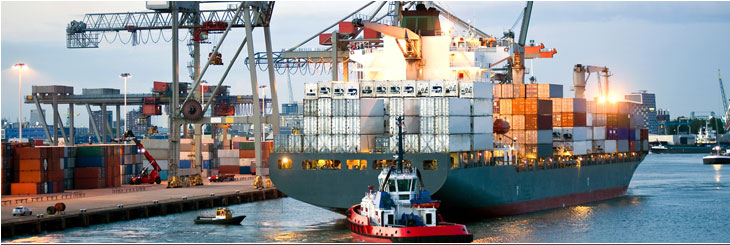Inland Waterways / Rivers
Biloxi, Mississippi Maritime Injury Attorneys
In the United States, some rivers and inland waterways are covered by maritime law. This was not always the case. Our maritime laws are based on very old laws and traditions, but they have evolved to keep up with the times. The inclusion of inland waterways is an example of that evolution. In the U.S. there are many inland waterways and rivers that are used commerce and transportation, so it was a practical choice to include them in maritime law.
Inland Waterways which are covered by Maritime Law
The rivers and inland waterways that are covered by maritime law are those which are deemed “navigable waters.” To be considered navigable a body of water must facilitate transportation of goods or passengers between two or more states or between the U.S. and another country. Inland waterways can be rivers, manmade waterways, or lakes such as the Great Lakes.
Inland Waterways of the U.S.
We have four major navigable waterway systems. Together they consist of about 12,000 miles of inland navigable water. The largest is the Mississippi River system, which contains about three-fourths of U.S. inland waterways
Some examples of inland waterways falling under maritime law include:
- Mississippi River
- Ohio River
- Missouri River
- Allegheny River
- Tennessee River
- Wabash River
- Illinois Waterway
- Tennessee-Tombigbee Waterway
- Gulf Intracoastal Waterway
Locks and Dams
Some of the accident risks on inland waterways are different to those at sea. Inland waterways have hazards such as bridges, locks, and dams. Locks and dams are controlled by The Army Corps of Engineers and other government entities. Unsafe operation of locks and dams can cause or contribute to inland waterway accidents.
It is necessary to thoroughly investigate whether improper operation or maintenance of locks and dams contributed to your accident. If so, you may have a lawsuit against the U.S. Government.
If you or a loved one is in need of legal assistance in Biloxi, Mississippi or anywhere on the Gulf Coast, please call Reeves & Mestayer, PLLC at (228) 374-5151 or toll free (877) 377-5152 or submit an online questionnaire. The initial consultation is free of charge, and if we agree to handle your case, we will work on a contingency fee basis, which means we get paid for our services only if there is a monetary recovery of funds. In many cases, a lawsuit must be filed before an applicable expiration date, known as a statute of limitations. Please call right away to ensure that you do not waive your right to possible compensation.

